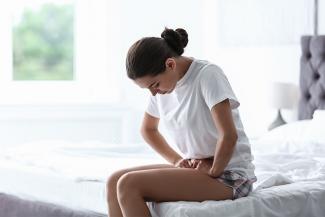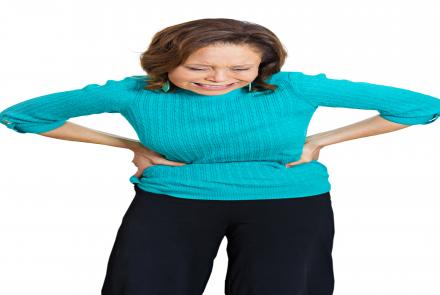
Obstetrician and gynaecologist Dr. Chandan Dubey, addresses some of the common questions on endometriosis, its association with PCOD and Obesity and how it affects fertility.
How common is Endometriosis? What factors increase a woman’s risk of getting endometriosis?
Endometriosis affects 2-10 % women in the reproductive age group globally.
Risk factors of Endometriosis may be:
- Pregnancy and childbirth after 30 years.
- First degree relatives with this condition.
- Structural abnormalities of uterus/ genital tract, which partially or completely prevent the menstrual flow.
What parts of the body are affected by endometriosis?
Endometriosis can affect:
- ovaries
- fallopian tubes
- surface and muscle of uterus
- space between uterus and rectum
- space between uterus and bladder
- cervix, vagina, vulva
- lining of pelvis and abdomen, ligaments of pelvis.
- Bladder, ureters, bowels
- abdominal surgery scar sites
Rarely it has been reported outside the abdomen like in lungs, brain
Can you explain the role of hormones in endometriosis? How does it affect fertility?
Endometriosis is endometrial lining growing in places where it is not supposed to grow. Growth of endometrium is estrogen dependent as also is endometriosis.
The exact mechanism of the effect of endometriosis on fertility is not known but it possibly impairs ovulation and egg quality due to inflammation if it involves ovaries, hampers the oocyte/ egg pickup by the fallopian tube due to scarring and change in the microenvironment , implantation defects due to the unfavorable changes in uterine lining and receptivity due to scarring and inflammatory effects.
Is it linked to Obesity? Or PCOD?
There seems to be an inverse relationship between endometriosis prevalence and Body Mass Index (BMI), with endometriosis being more common in women with low BMI or normal BMI. Conversely obese women with endometriosis are more likely to have severe form of the disease.
There is no definite scientific evidence of a link between PCOS and endometriosis.
Is Endometriosis progressive in nature? If I leave it alone, will it go away on its own?
The disease is estrogen hormone dependent and so usually starts regressing after menopause. Pain symptoms usually resolve after menopause. There is no cure for endometriosis. The treatment is symptom based and involves various medical and surgical options for pain relief or for fertility enhancement, individualized depending on patient’s need. If asymptomatic it may not require any treatment.
How does one assess pain levels for endometriosis?
Various pain scores are used by the treating doctor to assess pain and quantify it objectively.
Related Reading: Pain Assessment
Will pain go away after treatment or surgery?
Medical and surgical treatments options for pain relief are there and help ease the symptoms, but in some cases there may not be complete relief.
How does it affect the digestive system? Is it often confused with Irritable Bowel Syndrome (IBS)?
Endometriosis can cause pain during bowel motion, diarrhoea, constipation, bloating and bleeding during bowel motion if it affects the intestines. Its symptoms may be similar to IBS but usually in endometriosis there is a cyclical pattern of symptoms with aggravation during menstruation.
Do certain food products aggravate endometriosis? What foods should be avoided?
There is still no definite scientific knowledge on how foods effect the disease. A study has shown that green vegetables and fruits may decrease the risk and red meats may increase the risk.
Related Reading: How to reduce risk of endomteriosis
Many women have a range of allergic and skin reactions along with their endometriosis. What is the association with the immune system? Is it also affiliated with autoimmune disorders?
Some small studies have shown a possible link between endometriosis and immunological disorders, but large scale well designed controlled trials are needed to reach any conclusive evidence.
















